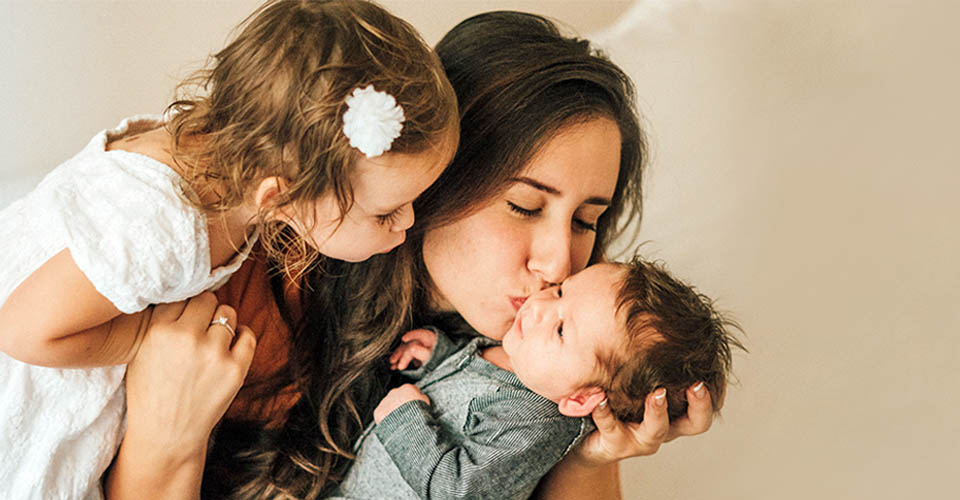Understanding gentle parenting meaning is truly about the respect and empathy you have for your child. As a mother myself and a pediatrician on top of that, I often get about how to discipline my child.
“Is punishment and scolding the right way to go?”
“Should I ground him for his misbehavior?”
These are things that I see in my practice all too often. Well, I have got a solution for you! As each day passes the concepts of traditional parenting are getting challenged all too often and rightly so, in my opinion.
To make the gentle parenting style a little bit clearer for parents or caregivers I am writing this blog. We’ll learn how it benefits both parents and children, offering practical tips for nurturing a strong and loving bond between them.
So let’s begin!
Understanding Gentle Parenting Meaning In-Depth
Gentle parenting is a way of raising kids that focuses on being kind, understanding, and respectful. The gentle parenting meaning is about helping rather than telling them what to do all the time. This approach believes in talking and listening to understand why a child behaves a certain way and then addressing it with love and patience.

Understanding gentle parenting meaning requires you to first acknowledge the importance of staying calm during heated conversations, says Dr. Laura Markham in her book, “Peaceful Parent, Happy Kids.”
She talks a lot about the importance of parents staying calm and connected with their children. Dr. Markham often says something like, “Being close to your child helps them listen to you better and learn how to control themselves.”
Dr. Shefali Tsabary’s contribution to understanding gentle parenting meaning involves the concept of conscious parenting. This aspect of gentle parenting techniques focuses on the deep connection between parent and child, highlighting the transformative power of approaching parenting with awareness and intentionality.
So why all this fuss? Is it more beneficial than traditional parenting? Let’s take a look!
Read More: What Are Parenting Styles? Explore Different Types Of Parenting Styles And It’s Impact On Children
Benefits of Using Gentle Parenting Techniques
Gentle parenting techniques bring many good things for both kids and their parents, making a home filled with love, understanding, and strong connections.

The following are some of the benefits of Gentle parenting techniques you need to be aware of:
1. Better Understanding of Feelings:
Gentle parenting helps kids get better at understanding their feelings and those of others. Parents take time to listen and respond to their children’s emotions, teaching them how to express themselves in healthy ways. This not only helps kids handle their feelings better but also teaches them to be kind and understanding towards others.
2. Stronger Relationship Between Parent and Child:
At the heart of the gentle parenting style is the deep connection it builds between parents and their kids. Through constant support, empathy, and respect, kids feel closer and more secure with their parents. This close bond encourages open communication, making kids more willing to share their lives with their parents.
3. Kids Behave Better and Cooperate More:
When learning about gentle parenting meaning you have to realize that it is about guiding kids rather than telling them what to do all the time. When kids feel listened to and their feelings are taken seriously, they’re more likely to follow rules and make good choices on their own.
This approach reduces arguments and helps kids understand the importance of behaving well because they want to, not because they’re afraid of getting in trouble.
4. Encourages Kids to Think and Do Things on Their Own:
The gentle parenting style involves kids in making decisions and solving problems, which helps them become more independent and smart thinkers. Kids learn to consider the effects of their actions and make responsible choices. This boosts their confidence and prepares them to face challenges on their own.
5. Less Stress and Worry for Everyone:
A gentle parenting style creates a peaceful home environment that’s less stressful for both parents and kids. When parents show calmness and control over their emotions, kids learn to do the same. This way of parenting avoids the stress and worry that come with strict rules and punishments, leading to a happier family life.
By focusing on kindness, understanding, and respect, gentle parenting not only makes the relationship between parents and children stronger but also supports children’s emotional well-being and success in life.
Read More: What Is Toxic Parenting? Signs And Ways To Deal With Toxic Parenting
7 Effective Tips For Gentle Parenting Style
Gentle parenting is an approach that focuses on fostering a strong bond between parent and child, while also prioritizing empathy, understanding, and respect.

Here are seven effective tips for gentle parenting from experts:
1. Practice Empathy:
Empathy, the cornerstone of gentle parenting, entails not only understanding but also sharing in your child’s emotions. It requires actively tuning into their feelings, even if their actions seem perplexing or disagreeable.
By validating your child’s emotions, you create a nurturing environment where they feel accepted and understood, fostering a deep bond of trust. This bond serves as the bedrock for effective communication and mutual respect between parent and child, laying the groundwork for healthy emotional development.
2. Set Clear Boundaries:
Clear and consistent boundaries provide children with a sense of security and structure, guiding them toward positive behavior. In gentle parenting, setting boundaries involves establishing firm yet flexible guidelines for acceptable conduct.
These boundaries should be communicated calmly and respectfully, allowing your child to comprehend the expectations without fear of judgment or punishment. Consistency in enforcing boundaries reinforces their significance and helps your child internalize essential values and principles.
3. Use Positive Reinforcement:
Positive reinforcement focuses on acknowledging and rewarding desirable behavior, reinforcing its continuation. In the context of gentle parenting, emphasizing positive reinforcement cultivates a nurturing atmosphere where your child feels encouraged and valued.
By praising their efforts and achievements, you bolster their self-esteem and motivation to exhibit positive behavior. This approach fosters a cooperative dynamic between parent and child, built on encouragement and mutual appreciation.
4. Practice Active Listening:
Active listening is a fundamental aspect of gentle parenting, characterized by attentive and non-judgmental engagement with your child. It involves truly hearing and understanding their perspective, fostering an atmosphere of trust and openness.
By actively listening to your child’s thoughts and feelings, you validate their experiences and demonstrate empathy, strengthening your connection. This deepened bond encourages your child to confide in you and fosters a sense of security and belonging within the family unit.
5. Model Gentle Behavior:
As a parent, you serve as a role model for your child, shaping their understanding of interpersonal interactions and emotional regulation.

In gentle parenting, modeling gentle behavior entails demonstrating patience, empathy, and respect in your interactions with others, including your child.
By exhibiting these qualities consistently, you provide a blueprint for positive communication and conflict resolution. Your actions serve as a powerful influence, guiding your child toward compassionate and considerate behavior in their interactions.
Read More: What Is Nacho Parenting and Why Is It Gaining Popularity? 5 Vital Tips for Nacho Parenting
6. Offer Choices:
Empowering your child through the provision of choices encourages autonomy and fosters a sense of responsibility. In gentle parenting, offering choices allows your child to exercise agency within appropriate parameters.
It promotes their development of decision-making skills. By presenting options in a respectful and supportive manner, you nurture your child’s sense of independence and self-confidence. This approach minimizes power struggles and cultivates a collaborative relationship based on mutual respect and understanding.
7. Focus on Connection:
Building and nurturing a strong emotional connection with your child is paramount in gentle parenting. Quality time spent together, engaging activities, and heartfelt conversations foster a deep sense of attachment and security.
By prioritizing connection, you create a supportive environment where your child feels seen, heard, and valued. This emotional foundation strengthens your relationship and facilitates effective communication, enabling you to navigate challenges with empathy and understanding.
Ultimately, a strong parent-child connection forms the heart of gentle parenting meaning, fostering a lifelong bond built on love, trust, and mutual respect.
A Word From Mind Family
When parents embrace gentle parenting meaning, they do more than good. This method makes the home a hub of love and strong connections. It shines a light on understanding feelings, strengthening the bond between parent and child, encouraging better behavior, developing independent thinking, and reducing stress for everyone.
The seven tips listed here are super helpful—things like being empathetic, setting clear rules, and praising good behavior.
They’re practical things that any parent can practice every day to make a significant impact in their children’s lives. When these methods are valued as part of your parenting strategy along with kindness and respect.
You’ll find yourself not just with a stronger relationship with your kids but also seeing them become emotionally healthier individuals who will succeed in life.
Mind Family is all about promoting these ideas and encourages all parents to take it up! Embrace these principles and watch as your love for one another grows into an unbreakable bond built on trust and mutual respect.
Frequently Asked Questions (FAQs)
1. What is gentle parenting?
Gentle parenting meaning is centered around prioritizing kindness, understanding, and respect in child-rearing. This approach emphasizes communication and empathy over strict discipline, fostering a nurturing environment for children to thrive.
2. What are the benefits of gentle parenting techniques?
Gentle parenting fosters better understanding of feelings, stronger parent-child relationships, improved behavior, reduced stress, and promotes independent thinking.
3. What are some tips for gentle parenting style?
Tips for gentle parenting include practicing empathy, setting clear boundaries, using positive reinforcement, active listening, modeling gentle behavior, offering choices, and focusing on connection.


















Leave a Reply